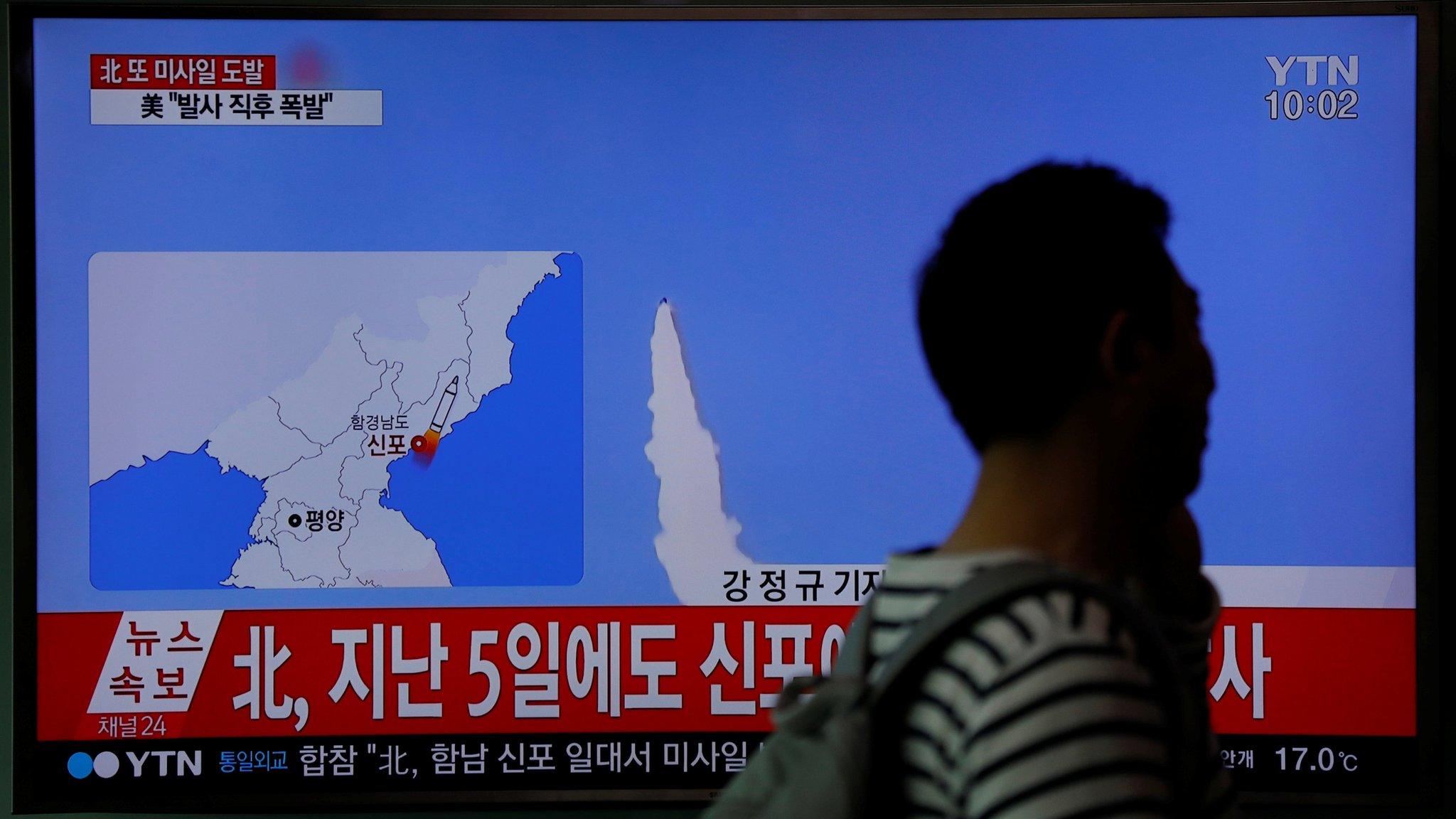Pence: US era of strategic patience with North Korea over
- Published
US Vice-President Mike Pence: "North Korea would do well not to test [President Trump's] resolve"
US Vice-President Mike Pence has said his country's "era of strategic patience" with North Korea is over.
Mr Pence first made the remarks at the demilitarised zone (DMZ), the area dividing the two Koreas, during a visit to South Korea to reaffirm ties.
His visit comes amid escalated tensions on the peninsula, with heated rhetoric from both North Korea and the US.
He arrived in Seoul on Sunday hours after North Korea carried out a failed missile launch.
On Monday, the US and South Korea launched a joint air force military exercise to ensure readiness against North Korea, according to South Korean media.
Mr Pence, whose father served in the Korean War, visited the truce village of Panmunjom, where the war's armistice was signed.
'Don't test US resolve'
Speaking alongside South Korea's acting President Hwang Kyo-ahn later, he said North Korea had conducted nuclear and missile tests as the previous US administration had observed a policy of "strategic patience", but this was now over.
"Just in the past two weeks, the world witnessed the strength and resolve of our new president in actions taken in Syria and Afghanistan," Mr Pence said.
"North Korea would do well not to test his resolve or the strength of the armed forces of the United States in this region."
He reiterated US support for South Korea, telling his host: "We are with you 100%."
Mr Hwang hailed the early deployment of the controversial US missile defence system (known as Thaad) designed to protect against threats from North Korea.
The US vice-president said he was disappointed that China had taken retaliatory actions against South Korea in response to the move.
Mr Pence's latest comments echoed those made by Secretary of State Rex Tillerson, who warned that pre-emptive military action was "on the table" when he visited the DMZ last month.
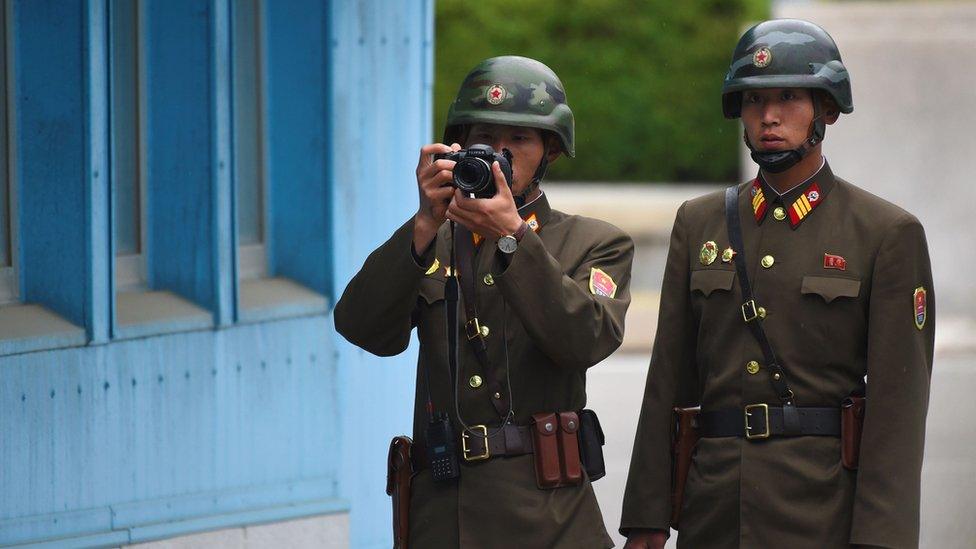
North Korean guards on the border watched as Mr Pence toured the village, with one seen photographing his visit
Russia's Foreign Minister Sergei Lavrov said Moscow would not tolerate "missile adventures by Pyongyang" but a unilateral use of power by the US would be "a very risky course".
On Sunday, Lt Gen HR McMaster, the US top security adviser, said his country was working on a "range of options" with China, the first confirmation the two countries were co-operating to find a solution to the North Korean issue.
US President Donald Trump also said on Sunday, external that Beijing was "working with us on the North Korean problem". He had stated last week that the US and its allies may "deal with" Pyongyang if China did not.
The BBC's Stephen Evans in Seoul says US policy now seems to be to persuade China to contain North Korea while keeping the economic and military pressure on.
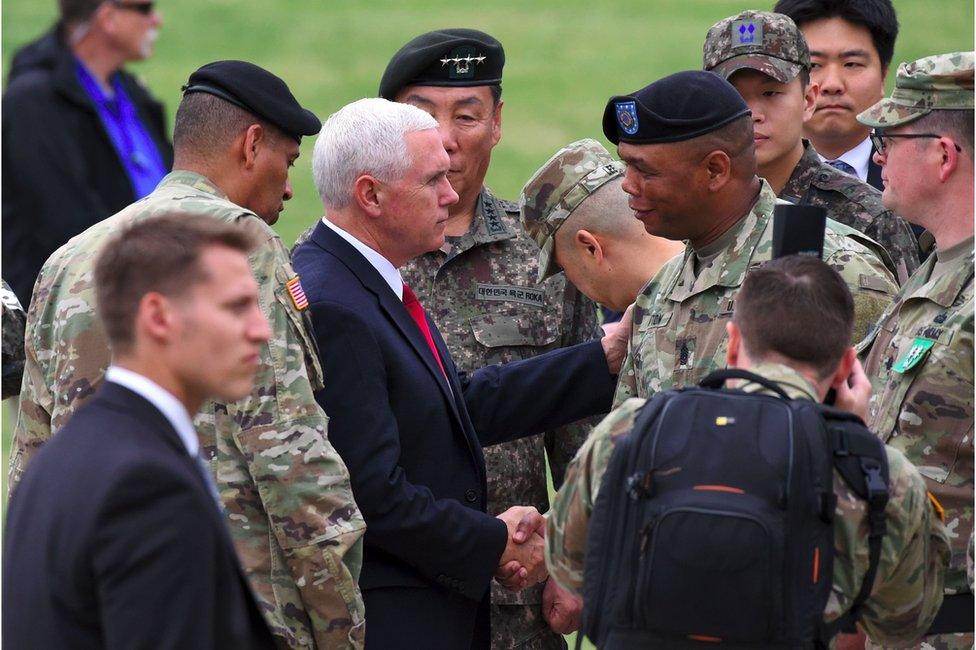
Mike Pence met US and South Korean military officers near the DMZ
China, historically Pyongyang's sole major ally, has reiterated its call for North Korea to stop all tests, and has also called for a peaceful solution.
Chinese Foreign Ministry spokesman Lu Kang told reporters in Beijing on Monday that the Korean peninsula was "highly sensitive, complicated and high risk" and that all sides should "avoid taking provocative actions that pour oil on the fire".
He added that the crisis is between the US and North Korea, noting that "China is not the initiator of the Korean peninsula nuclear issue".
Besides Sunday's launch, North Korea has held a series of large-scale events in the past week including a massive celebration and military parade on Saturday.
Also on Monday, North Korean leader Kim Jong Un penned a letter to Syrian President Bashar al-Assad to mark the 70th anniversary of Syria's independence, according to state news agency KCNA.
"I express again a strong support and alliance to the Syrian government and its people for its work of justice, condemning the United States' recent violent invasive act against your country," he reportedly wrote.
Pyongyang has denounced the US deployment of an aircraft carrier group to the region, saying it would respond by "force of arms" to "reckless moves".
Observers have said North Korea may conduct a sixth nuclear test soon, with activity reported, external at nuclear facilities, according to the website 38 North., external
Meanwhile about 1,000 US airmen and fighter jets are taking part in a combat training exercise in South Korea, reported Yonhap news agency., external South Korea has sent about 500 personnel and planes. The Max Thunder exercise will last for two weeks.
The BBC's John Sudworth, in Pyongyang, explains what may happen next
Mr Pence is visiting South Korea, Japan, Indonesia and Australia on a 10-day Asia tour.
He is expected to discuss rising tension on the Korean peninsula with Japanese Prime Minister Shinzo Abe on Tuesday, when he heads to Tokyo for economic talks with Finance Minister Taro Aso.
Mr Abe on Monday told a parliamentary session that diplomatic efforts were "important to maintain peace", but "dialogue for the sake of having dialogue is meaningless".
He added that Japan needed to apply pressure on Pyongyang to "seriously respond to a dialogue" with the international community.

What is the Terminal High Altitude Area Defense System (Thaad)?
Shoots down short and medium-range ballistic missiles in the terminal phase of their flight
Uses hit-to-kill technology - where kinetic energy destroys the incoming warhead
Has a range of 200km and can reach an altitude of 150km
US has previously deployed it in Guam and Hawaii as a measure against potential attacks from North Korea
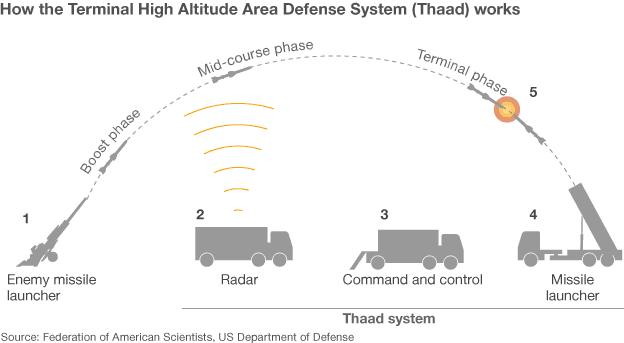
1. The enemy launches a missile
2. The Thaad radar system detects the launch, which is relayed to command and control
3. Thaad command and control instructs the launch of an interceptor missile
4. The interceptor missile is fired at the enemy projectile
5. The enemy projectile is destroyed in the terminal phase of flight
- Published16 April 2017
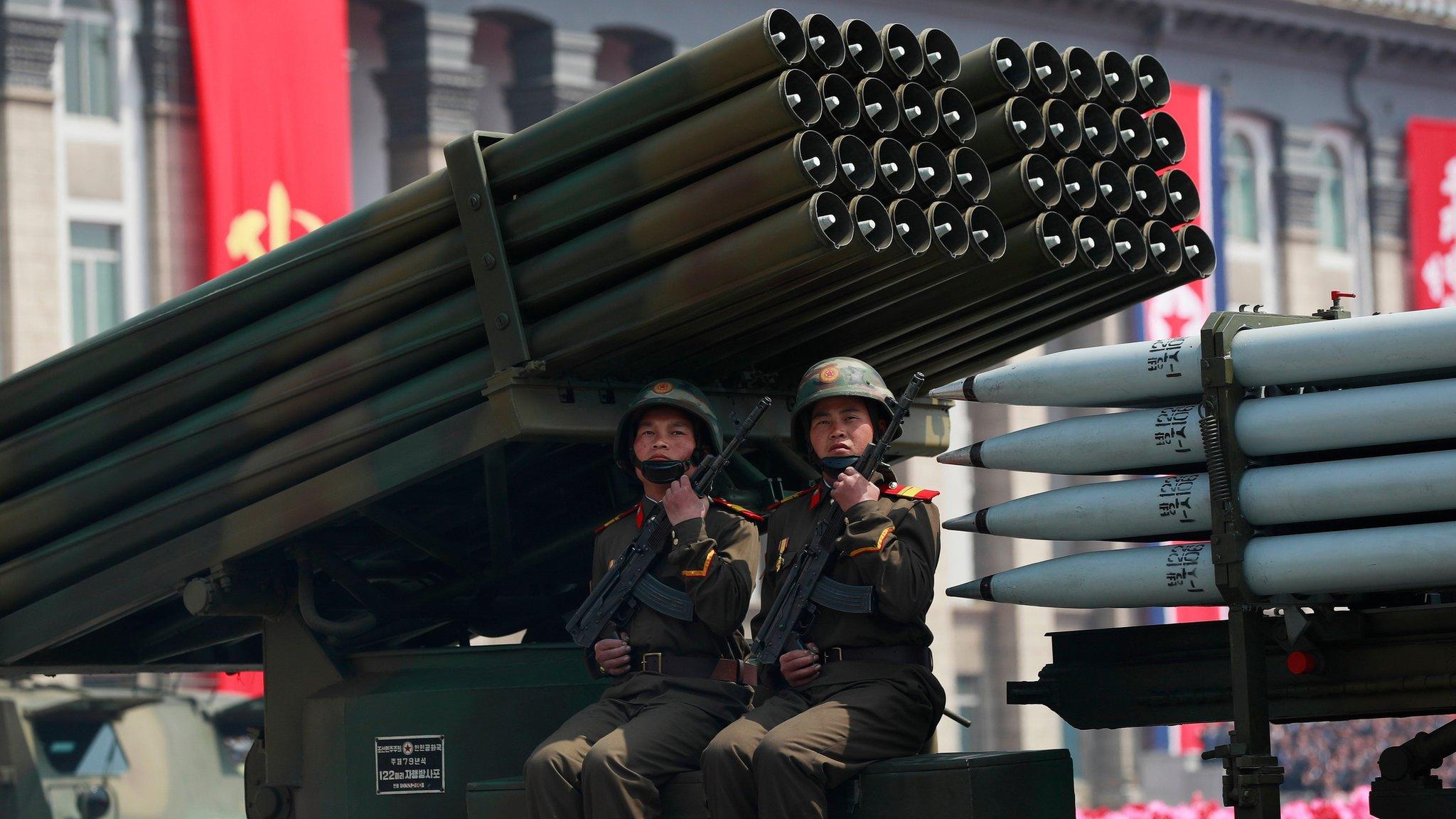
- Published4 July 2017
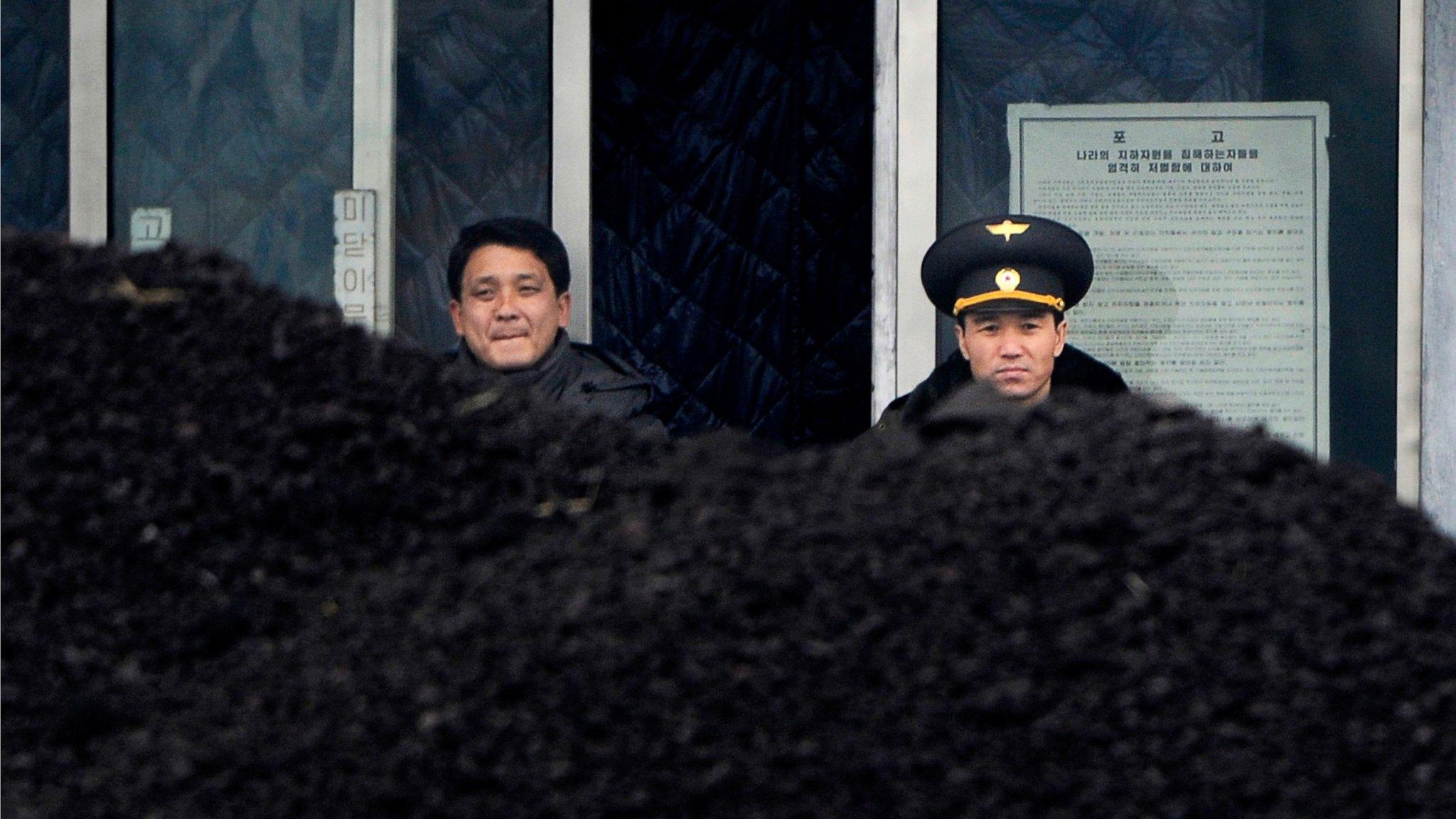
- Published15 April 2017
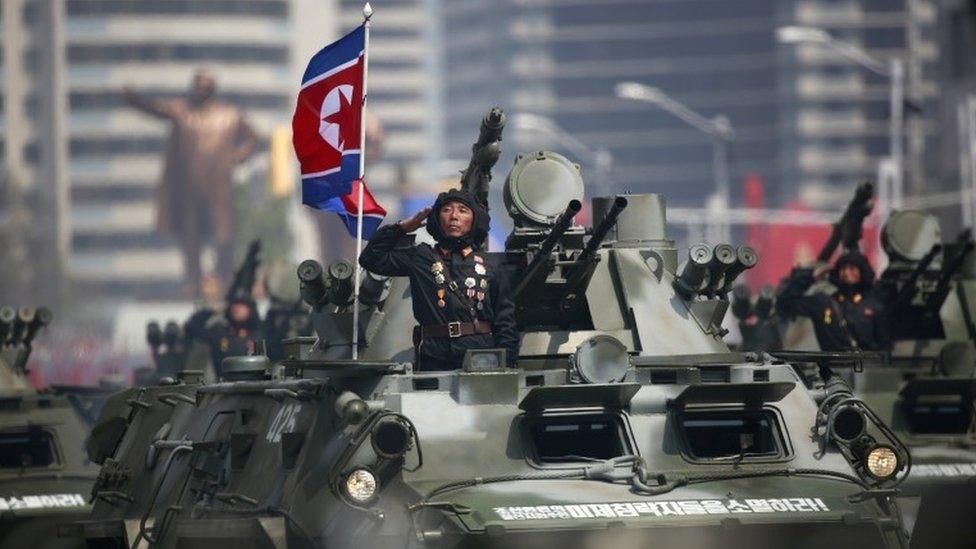
- Published10 August 2017
- Published14 March 2017
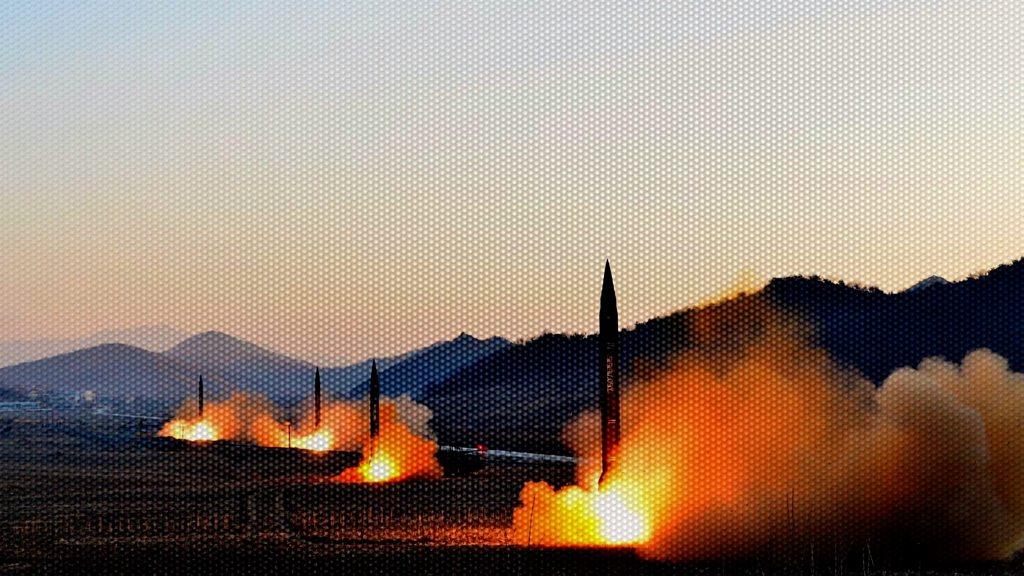
- Published10 August 2017
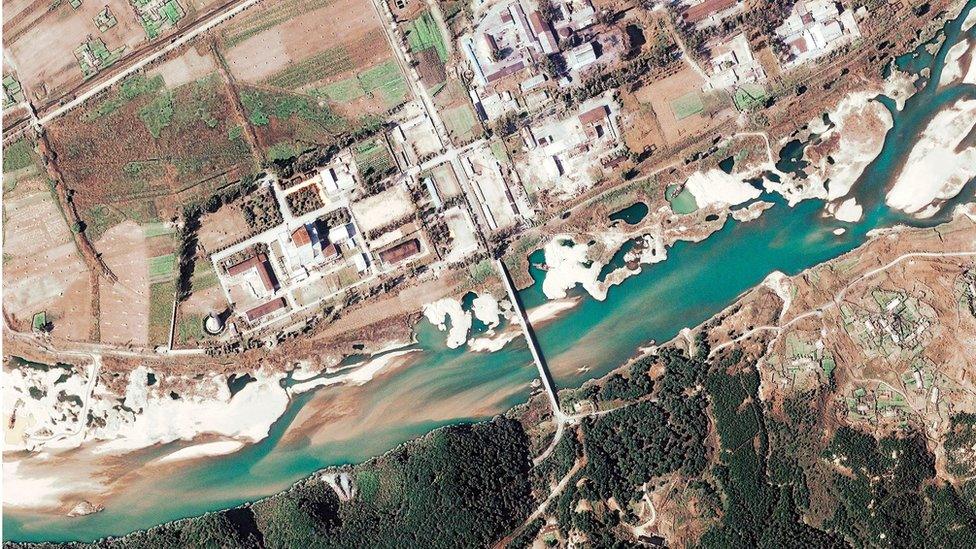
- Published16 April 2017
